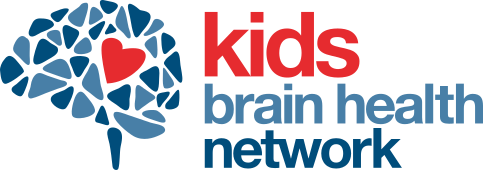|
Do you find that since the pandemic began, your kids are spending less time getting active? You’re not alone. ParticipACTION launched its Report Card on Physical Activity for Children and Youth last week for April, and the results are grim. Only 39% of children ages 5-17 are meeting national guidelines of getting 60 minutes a day of vigorous activity.
In some ways, this is unsurprising. With playdates cancelled, schools closed, and playgrounds off-limits, ways for kids to get active has been very limited. This is especially true for children who live in apartment complexes, or areas without a backyard or limited private areas to play outside. Without school, sedentary screen time may increase as children are stuck inside and unoccupied while parents are working. Dr. Leigh Vanderloo, an exercise scientist with ParticipACTION, mentions that exercise can play a huge protective role in mental health. “What we often overlook are the benefits to mental health. So dealing with stress, resiliency, symptoms of depression and anxiety. As well as cognitive, how kids think and learn,” she said. Concern for mental health is especially relevant right now, when families are facing dramatic upheaval and uncertainty. On the positive side, as the province begins to reopen, so do opportunities for children to get active. Public pools, parks, and splash pads are now open in most regions, and social circles have increased to 10, opening some limited opportunities for play dates. Vanderloo also suggests to parents what she describes as co-participation. “Actually engage in the activity with them. So kicking a ball with them, going on an after-dinner walk with them, that’s what we’re seeing is probably the biggest source of influence.” What is your family doing to get active? For the full ParticipACTION report, see here: https://www.participaction.com/en-ca/resources/children-and-youth-report-card To learn more about our LEAP study for parents of school-aged children, which studies how factors like physical activity protect from the negative impacts of school closures, see here: http://www.leapstudy.ca/
0 Comments
On June 17th an advisory group for the Hospital for Sick Children (SickKids) in Toronto, one of Canada's leading children's hospitals, released a series of recommendations on schools reopening. The experts stressed that although proper safety precautions should be in place, children need to return to school. The last few months of school closures have been necessary to curb the spread of the pandemic, but as time goes on the negative impacts on child behavior and mental health will outweigh the benefits, especially for those with complex needs.
“We strongly believe that it is of utmost importance that we open schools in September,” Dr. Ronald Cohn, president and CEO of SickKids, said during a webinar on Wednesday. “The impact on the mental, behavioural, and developmental health of children not going to school, not being exposed to in-person teaching, and not being with their friends and peers is something that myself and many of my colleagues in pediatrics are literally losing sleep over.” Sick Kids advised that schools should screen children for symptoms before they enter, encourage hand hygiene, and implement some physical distancing measures. However, they advised against the use of face masks for students and stated that children should be allowed to play with one another. Here at the Developing Brain Lab, we couldn't agree more. Dr. Emma Duerden points out that the last few months have taken their toll on parents and kids alike. “Due to the COVID-19 pandemic, Ontario school closures have resulted in education shifting from the classroom to the living room, and the burden largely falls on parents. For parents of elementary school children who are working full time from home, this involves juggling home and work commitments, which can be stressful.” A recent study from the University of Oxford found that the mental health of children during the pandemic has been negatively affected as well. However, not all families may feel ready for the shift back to school. A study in the UK found that parent opinion was split on whether children should return. All families have different situations and concerns, and this can make it challenging for politicians and public health officials to find a solution that works for all. The Developing Brain Lab is currently running an online study called "Learning, Education, and the Pandemic (LEAP)" to understand the full impact the move to online learning has had on families with school-aged children. Anyone with a child between the ages of 6-12 years old who attends an Ontario publicly-funded school and is now receiving virtual schooling at home can participate. Participation includes a short questionnaire for the parent, and optional cognitive games for the child. The study takes about 30 minutes to complete. The full Sick Kids report can be found here For more information on the LEAP study, check out www.leapstudy.ca |
Archives
August 2020
Categories |
 RSS Feed
RSS Feed









